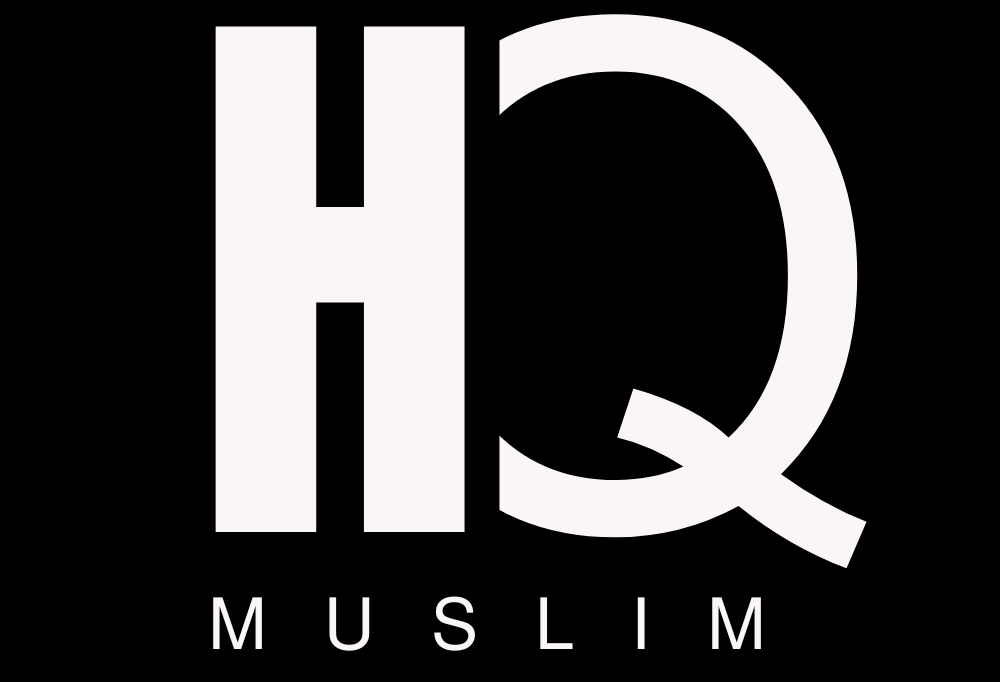Unshackling the Soul: How to Burn Fear from the Body and Awaken the Indestructible Self
Subtitle: From Nerve-locked Panic to Divine Presence—A Journey of Reclaiming Power, Feeling Without Fear, and Healing Through Conscious Awareness
1a. The Body as a Prison: Fear Lives in the Flesh
📝 The Point:
• Fear isn’t just in the head—it’s wired deep in the body, hijacking the nervous system and locking us in cycles of anxiety.
• The speaker describes living with constant inner chaos: racing heart, irrational fears, and suffocating panic from everyday triggers.
• He tried everything—medication, psychedelics, therapy, float tanks—but nothing created lasting peace.
⚖️ The Law:
• The Quran states, “Verily in the remembrance of Allah do hearts find rest.” (Surah Ar-Ra’d 13:28)—true calm is spiritual, not chemical.
• Ibn Qayyim writes: “Fear is a whip in the hand of Allah that awakens the heedless.”
• Islam warns against seeking relief solely through substances or sensations—what cannot touch the soul cannot heal it.
🔮 And So:
• Techniques may ease symptoms, but only the soul’s anchoring can break fear’s roots.
• A nervous system ruled by trauma resists shortcuts—it needs truth and safety.
• The contradiction is clear: the modern methods promise release but rarely reach the seat of the soul.
“Can we ever truly silence fear without first addressing who we believe ourselves to be?”
1b. The Myth of Mental Fixing: Why Thinking Can’t Heal Feeling
📝 The Point:
• Popular belief says thoughts create feelings—so just “think better.” But the body tells a different story.
• Emotions come first, rising from the nervous system—then the mind tries to explain them with stories.
• Trying to “talk your way out” of fear is like whispering into a storm.
⚖️ The Law:
• Imam Al-Ghazali emphasized that the soul is swayed more by the qalb (heart center) than the intellect.
• The Prophet (SAW) said, “There is a piece of flesh which, if sound, the whole body is sound… It is the heart.” (Bukhari & Muslim)
• True healing must start where the wound exists—in the emotional and spiritual core, not the surface mind.
🔮 And So:
• Fear won’t dissolve through mindset alone—it demands surrender, not strategy.
• The path to peace is through feeling, not fleeing discomfort.
• The mind interprets, but the body holds the memory of every unprocessed trauma.
“If fear is felt in the body, why do we keep trying to fight it with thoughts?”
1c. Discovering the Indestructible Self: Awareness Beyond Form
📝 The Point:
• The speaker realizes his true nature is not thoughts or pain, but pure awareness—untouched, unmoved.
• This “awareness” isn’t belief—it’s experienced as the still backdrop behind all storms.
• Fear begins to lose power when it’s seen as just noise on the screen, not who we are.
⚖️ The Law:
• In Islamic metaphysics, Fitrah is the primordial state—the soul’s pure knowing of its Creator and Self.
• Al-Hasan al-Basri said, “He who knows himself, knows his Lord.”
• The Quran invites us to reflect: “Do not be like those who forgot Allah, so He made them forget themselves.” (Surah Al-Hashr 59:19)
🔮 And So:
• Identification with ego = fear; recognition of the soul = safety.
• Awareness isn’t a theory—it’s the doorway to spiritual clarity and inner sanctuary.
• Once you realize you are not the pain, but the one observing it, everything begins to shift.
“What if the fear you feel is just the soul forgetting its original face?”
1d. Safety First: Feeling Without Drowning
📝 The Point:
• Healing requires emotional safety—a space where the body trusts it won’t be overwhelmed.
• Therapists call this the “window of tolerance”—the space between numbness and panic where true release can occur.
• Feeling is necessary for healing, but only when rooted in safety, not force.
⚖️ The Law:
• The Prophet (SAW) said, “Make things easy, not difficult…” (Bukhari)
• Islam encourages gradual inner purification (tazkiyah), not sudden overload.
• Sufi paths speak of “safeguarding the heart”—never overloading the seeker beyond what they can carry.
🔮 And So:
• Trauma must be welcomed into light, not dragged.
• The deeper the pain, the more delicate the process.
• You cannot feel freely unless the soul believes it is secure.
“How can you let go of fear if your inner self still thinks it’s at war?”
1e. The Process of Full Presence: Feeling Without Resisting
📝 The Point:
• The speaker guides us to notice, allow, and welcome the most uncomfortable sensations—without fighting or fixing them.
• Sensations may intensify, move, soften, or release—but they never harm.
• The act of fully being with fear, not against it, dissolves its grip.
⚖️ The Law:
• The Qur’an says, “Indeed, with hardship comes ease.” (Surah Al-Inshirah 94:6)—ease is birthed through hardship, not around it.
• Ibn Ata’illah al-Iskandari wrote, “Nothing is more beneficial to the heart than seclusion that allows it to enter a state of reflection.”
• Islam teaches the adab (etiquette) of silence and presence—khushu’—stillness in awareness is healing.
🔮 And So:
• Feeling is the medicine we often avoid.
• Resisting fear only feeds it; welcoming fear exposes its illusion.
• Stillness is not absence—it’s sanctuary.
“If you could truly sit with your pain, would you still call it pain—or a passage?”
1f. Thoughts as Fleeting Clouds: Awareness Is the Sky
📝 The Point:
• Thoughts appear like background noise—dark podcasts, dramatic stories—but pass without substance.
• When we stop identifying with them, they fade into the backdrop of awareness.
• You are not the storm; you are the sky it passes through.
⚖️ The Law:
• “They plan, and Allah plans. And Allah is the best of planners.” (Surah Al-Imran 3:54)—outcomes lie beyond our anxious mental loops.
• Imam Shafi’i said, “The most ignorant of people is the one who abandons certainty for doubt.”
• Islam teaches surrender to Divine decree—not endless rehearsals of imagined futures.
🔮 And So:
• Fearful thoughts can only control when believed.
• Detachment from thoughts opens space for clarity.
• The power of the mind weakens when the soul remembers it is not the mind.
“What if every thought was just a guest—why make them kings in the castle of your soul?”
1g. Healing Is Not Instant—But It’s Inevitable
📝 The Point:
• Healing doesn’t happen overnight—it requires hours of deep stillness, presence, and trust.
• Each “layer” of fear relates to different life themes: money, love, survival.
• True healing is a peeling process—fear burns away one layer at a time.
⚖️ The Law:
• The Prophet (SAW) said, “The most beloved of actions to Allah are those which are done consistently, even if small.” (Bukhari)
• The Sufi path is not a sprint—it is suluk (gradual journey through stages).
• Islam respects human pace—each soul walks its unique path to tawba (return).
🔮 And So:
• Be patient with your pain—it’s undoing decades of inner wiring.
• Transformation is not linear; it’s cyclical, wave-like.
• Healing honors time—not deadlines.
“What if your slow path was not failure, but the most compassionate unfolding possible?”
1h. Using Imagination to Draw Fear into Light
📝 The Point:
• The speaker used visualization to summon specific fears—money, relationships, health—and then sat with them, fully felt them.
• This intentional triggering allowed fear to surface and dissolve.
• The imagination became a sacred tool for unearthing and healing trauma.
⚖️ The Law:
• The Prophet (SAW) used visual examples (e.g., “This world is like a shade…”) to awaken reflection.
• Islam encourages muraqabah—conscious watchfulness—observing thoughts and feelings without judgment.
• Imam Al-Haddad wrote, “The heart that does not reflect is like a ruined house.”
🔮 And So:
• Fear must be found before it can be freed.
• Imagination can either trap or liberate—depending on intention.
• Facing fear, not fleeing it, grants access to real freedom.
“If imagination can create anxiety, can it also open the door to your healing?”
1i. Anchoring in Spiritual Awareness, Not Tools Alone
📝 The Point:
• The speaker offers resources and invites deeper group work—but emphasizes awareness, not just technique.
• Tools help—but without presence, they are empty.
• The heart of the practice is staying as awareness, no matter what arises.
⚖️ The Law:
• The Qur’an teaches: “And whoever relies upon Allah—then He is sufficient for him.” (Surah At-Talaq 65:3)
• Tools are means (asbab); healing is by tawakkul (reliance upon God).
• Islam doesn’t idolize method—it anchors in sincerity (ikhlas).
🔮 And So:
• Techniques are boats; awareness is the ocean.
• If you forget your center, no method can save you.
• But if you stay rooted in awareness, even silence becomes medicine.
“What if everything you’re seeking outside is already alive inside you, waiting to be noticed?”
1j. The Root of Fear Is Forgetfulness
📝 The Point:
• We fear because we forget who we are—eternal, untouched awareness.
• We chase peace in distraction, but never rest in being.
• Reconnecting with the real self is the start of true liberation.
⚖️ The Law:
• “And be not like those who forgot Allah, so He made them forget themselves.” (Surah Al-Hashr 59:19)
• Ibn Qayyim said, “He who knows his soul will know his Lord.”
• Islam teaches dhikr (remembrance) not just of God—but of the self’s true position in His presence.
🔮 And So:
• Fear is not a flaw—it’s a symptom of disconnection.
• The cure is remembrance—not reaction.
• Return to awareness, and fear loses its roots.
“What if fear is not your enemy, but your teacher showing you what you’ve forgotten?”
1k. Liberation Through Inner Knowing, Not Outer Change
📝 The Point:
• Relief didn’t come from fixing life—but from knowing the self, staying with sensation, and dissolving illusion.
• The external world didn’t have to change—he did.
• Transformation happened inward, quietly, and then everything else followed.
⚖️ The Law:
• The Qur’an says, “Indeed, Allah will not change the condition of a people until they change what is in themselves.” (Surah Ar-Ra’d 13:11)
• The Prophet (SAW) transformed societies not by force—but by transforming hearts.
• Islamic tradition honors tazkiyah an-nafs—purification as the engine of change.
🔮 And So:
• Liberation is never found in the world—it begins within.
• When the soul awakens, the world realigns.
• The most radical change is the one no one sees—but you feel it in every breath.
“What if nothing around you needs to shift, if the one seeing it changes?”
The 10 Inner Commandments of Fearless Awakening: A Manual for Burning Anxiety to the Ground
1. Sit Inside the Fire
Thou shalt stop escaping and start feeling.
Let fear come. Let it speak. Let it burn. It’s not your enemy—it’s your doorway.
2. Recognize the Real You
Thou shalt remember: you are not the thought, nor the fear, but the field they float through.
Awareness never breaks. Know this and fear loses its throne.
3. Feel First, Understand Later
Thou shalt stop overthinking and start under-feeling.
You don’t need more logic—you need to feel the ache beneath the words.
4. Dismantle the Lie of Mind Control
Thou shalt not seek safety in better thinking.
Thoughts may scream, but they do not define. Let them pass like birds, not settle like storms.
5. Find Refuge in Awareness, Not Technique
Thou shalt not make rituals your god.
Ice baths help. Breathwork helps. But none can replace the safety of being what you already are.
6. Expand the Window of Tolerance
Thou shalt learn to feel deeper without flinching.
Stretch your soul’s capacity gently. Feel what once broke you—and watch it soften.
7. Use Imagination as a Sacred Tool
Thou shalt visualize the wound to extract the poison.
Let your mind become a scalpel. Call forth your fear, and hold it in divine witness.
8. Dissolve Resistance, Not Emotion
Thou shalt not fight sensation—thou shalt embrace it.
Pain flows when not blocked. Let discomfort pass through the temple without chains.
9. Trust the Slowness of Real Healing
Thou shalt not envy instant enlightenment.
Layers come off like bark, not like bandages. Stay in the peeling. That’s where the truth is.
10. Anchor in Divine Memory
Thou shalt not forget thy eternal self.
You are not the storm—you are the sky. You are not the fear—you are the soul that watches it dissolve.
Glossary
• Awareness: Conscious presence; the part of you that observes thoughts, feelings, and sensations without reacting.
• Window of Tolerance: Emotional zone where one can process without being overwhelmed.
• Tazkiyah: Inner purification and soul discipline in Islam.
• Fitrah: The soul’s pure, original nature and innate knowledge of Allah.
• Dhikr: Remembrance—especially of God, often through repeated phrases or internal stillness.
• Suluk: A spiritual journey through disciplined inner work.
• Tawakkul: Trust and reliance on God.
• Qalb: The spiritual heart—seat of perception and connection in Islamic thought.







